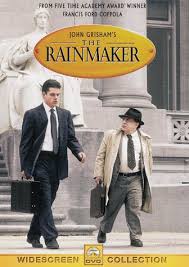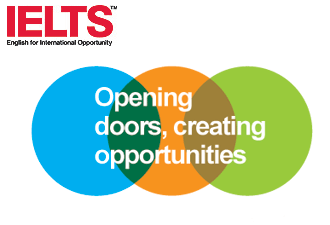1. Background“Fix You” is a song by an English alternative rock band named
Coldplay. It was written by all four members of the band for their third album,
X & Y. It was written by all four members of the band for their third album, X & Y . This song became popular worldwide in 2005, yet it was critisized as having a
clunky wording . This fact drove me to analise the song’s lyric from linguistics point of view, focusing on its rhymes and clauses which are related heavily to its wording.
A song may contain, though not always, rhymes. This feature will make the song more easy-listening and familiar to the listeners. Coldplay often uses rhymes in their songs, and Fix You is one of their songs which contain rhymes in every verse. This essay will phonologically discuss what those rhymes are and their patterns.
Aside from any figurative meaning, interpreting the full meanings of a song might be difficult before its sentences are determined by analysing its clauses. Fix You contains many conjunctions, thereby listeners might find it difficult to perceive the main clauses. Consequently, they would only seize embedded clauses and a pile of separated meanings. This essay will also discuss how to determine main and subordinate clauses in Fix You, including detecting ellipsis and complementizers.
Finally, there will be an insight of whether Fix You really has a clunky wording. The full lyrics of this song is provided in the last two pages of this essay (after references).
2. AnalysisThis part is divided into “rhymes” (phonological feature) and “clauses” (syntactic feature).
2.1. RhymesThis song contains many rhymes. The most visible ones are each last words in each verse. However, rhymes in this song are not that simple, and it should be observed as a whole. Therefore, the data divided into verses and a chorus to be analysed separately, and then thoroughly.
Lines in Verse I are ended by [sək’si:d], [ni:d], [sli:p], [ri’və:s]. Only the last line is ended by a different vowel -- [ə] in [və:s], while the others are ended by [i] in [i:d] and [i:p]. Both [d] and [p] are plosive consonants, and this fact supports the similarities between [sək’si:d], [ni:d], and [sli:p].
Lines in Verse II are ended by [feis], [ri’pleis], [weist], [wə:s]. Again, only the last line has a different vowel, for the others are ended by [eis] or [eist]. Both [s] and [t] are alveolar consonants, and hence it facilitates the movement from [eis] to [eist].
Verse I and Verse II have distinct last lines, ended by [ri’və:s] and [wə:s] respectively. A rhyme can be derived from here because they contain similar syllables, [və:s] and [wə:s]. Considering that [v] and [w] are voiced consonants, it is acceptable to refer [ri’və:s] and [wə:s] as having the same rhyme.
Chorus of this song has three rhymes. The lines are ended by [houm], [bouns], [ju:]. The last one, [ju:], will be explained later. Since [houm] and [bouns] are closely related according to the fact that [m] and [n] are nasal consonants, they are considered as a rhyme. Meanwhile, [n] and [s] are alveolar consonants, thereby it indicates no significant movement in its pronounciation; hence [bouns] rhymes with [houm].
Another rhyme in the chorus can be found in the middle of the lines. They are [gaid], [ig’nait], [trai]. There are two similarities which make them acceptable as a rhyme. First, all of them contains [ai]. Second, [d] and [t] are plosive bilabial consonants. The fact that there is no closing consonant in [trai] is not a significant difference.
There are also thwo rhymes in Verse III. Lines in this verse are ended by [bi’lou], [gou], [knou], [wə:θ]. There is a lucid rhyme between [bi’lou], [gou], [knou] which have the same diphtong [ou]. However, the last one, [wə:θ], rhymes with [ri’və:s] and [wə:s] from Verse I and Verse II because both [s] and [θ] are fricative consonants.
There is another rhyme in Verse III which occurs in the middle of its lines. They are [ə’bΛv] and [lΛv]. The word [trai] in (n) line is not similar enough to be considered as rhyming with [ə’bΛv] and [lΛv].
Rhymes in Verse IV and Verse V have similar pattern with Verse I and Verse II. Every lines in Verse IV and Verse V are ended by [eis] in [feis] and [ri’pleis], except (u) which is ended by [eik] in [mi’steik]. However, they still have the same diphtong – [ei]; hence, they are considered a rhyme. Another rhyme is [ænd ai] in (s) and (w), forming a rhyme in different verses.
As the title of this song is “Fix You”, this clause is repeated several times. In fact, verse containing [fiks ju:] is repeated three times thoroughly, and hence this verse is called chorus. The last line of this chorus, (k), is [ænd ai wil trai tu: fiks ju:]. The last lines of Verse IV and Verse V are designed to deliver the last chorus repetition smoothly by copying its first two phones in (k) -- [ænd ai].
2.2 ClausesA clause is a sentence that contains one predicate which expresses an event in the clause, and typically (though not always) centres on a verb (Tellerman, 1998: 63). A sentence must consist of at least one independent clause (a clause which contain a finite verb). When there are more than one clause in a sentence, one of them is a main clause, and the others are embedded/subordinate clauses. In addition, relative clauses are a type of embedded clause which modifies a noun (Tellerman, 1998: 82).
The first verse consists of subordinate clauses. Although each of line (a), (b), and (c) has more than one clause, all of them are subordinate clauses because they are iniatiated by conjunctions (when or but) and a pronoun (what). The later forms two noun subordinate clauses in line (b). Every subordinate clauses in (a), (b), and (c) are independent clauses as each of them has a finite verb. The subordinate clauses are shown below with # signs to mark the clause boundaries, and the finite verbs are in bold.
Verse I
(a) when you try your best # but you don't succeed
(b) when you get # what you want # but not what you need
(c) when you feel so tired # but you can't sleep
(d) stuck in reverse
The last line in Verse I, stuck in reverse, has no subject; hence it is a dependent clause. However, this text is a song, thereby the occurrence of ellipsis is possible. Ellipsis occurs when some essential structural element is omitted from a sentence or clause and can only be recovered by referring to an element in the preceding text (Nunan, 1993: 25). It is suggested that this line has an ellipsis referring to you which has been mentioned in every previous clauses. Therefore, the last line is suggested to be a main clause you are stuck in reverse, and embedded by three subordinate clauses -- (a), (b), and (c). In conclusion, conditions in (a), (b), and (c) are describing line (d).
In Verse II, line (e), (f), and (g) are subordinate clauses as they are started with conjunctions (when or but). In line (f), the second clause is a relative clause with a gap that should be filled by that. There are two dependent clauses; the second clause in line (e) which has a participle streaming, and the last clause in line (g) which is an infinitive to waste.
Verse II
(e) when the tears come # streaming down your face
(f) when you lose something # (that) you can't replace
(g) when you love someone # but it goes # to waste
(h) could it be worse
The next line is could it be worse. Since the line has a subject/auxiliary inversion (switching of position), it is a main clause. The key is the word it. In this essay, it is assumed as referring to the situation described in the previous verse – (you are) stuck in reverse. The line (e), (f), and (g) are subordinate clauses embedded to line (h). The function of these subordinate clauses is to add new conditions that could make it become worse.
Chorus of this song consists of three lines. The first line is a main clause lights will guide you home. Therefore, it is clear that the other lines, which are initiated by conjunction and, are embedded to the first line.
Chorus
(i) lights will guide you home
(j) and ignite your bones
(k) and I will try to fix you
Verse III has four lines. Clauses in line (l) and first clauses in (m), (n) are initiated by conjunctions – and, or, when, and but respectively. The last line is initiated by an adverb just and a pronoun what. Hence, all lines in Verse III are subordinate clauses.
Verse III
(l) and high up above # or down below
(m) when you (are) too in love # to let # it go
(n) but if you never try # you'll never know
(o) just what you’re worth
Clauses in Verse III should be detailed further. Clauses in the first line does not have any subject and verb. There is no verb in the first clause of line (m), but it is suggested that a finite verb are fills this gap. The second and third clauses of this line has non-finite verbs to let and go. Actually in line (n), if you never try you’ll never know can form a sentence because it contains an independent clause -- you’ll never know. Nevertheless, since it is attached to an intrasentence conjunction, but, it is not a sentence. The last line in Verse III, just what you’re worth is a noun subordinate clause since it contains a pronoun (what).
It has been discussed that Verse III only consists of subordinate clauses. A reasonable solution to this problem is considering one of the clauses in Verse as a main clause. There are two lines started with coordinative conjunctions, (k) with and, and (n) with but. Line (k) is the most possible option as and is a conjunction of which function is to give equal additional information, unlike but which requires a prior contradiction. Furthermore, line (k) needs a subject to fill the gap caused by an ellipsis. Because the subjects of other lines in this verse are you, line (k) should be modified into you are high up above and down below which can be embedded by the other lines in Verse III.
Verse IV consists of three lines, and the last line is a copy of the first line. Line (p) and (r) are independent clauses. The subordinate clauses in line (q) can be embedded to either line (p) or (r).
Verse IV
(p) tears stream down your face
(q) when you lose something # (that) you cannot replace
(r) tears stream down your face
(s) and I…
There are three lines in Verse V. Like the previous verse, its last line is a copy of the first line. Every line has at least one independent clause. In line (t), the second clause is a subordinate clause because it contains an omitted complementizer that.
Verse V
(t) tears stream down your face
(u) I promise you # (that) I will learn from my mistakes
(v) tears stream down your face
(w) and I…
Line (s) and (v) only consists of a conjunction and a pronoun, therefore they are not clauses. Similar to what has been stated in 2.1, the last lines of Verse IV and Verse V are designed to deliver the last chorus repetition smoothly by copying its first two words in (k) -- and I.
3. ConclusionIn creating “Fix You”, Coldplay carefully chose some sets of words with same vowels or diphtongs to form rhymes. Some of them even followed by similar consonants, such as the plosive consonants [d] and [p] of [sək’si:d], [ni:d], and [sli:p] in Verse I. Patterns of the rhymes are not limited into each verse. Rhymes created by Coldplay in this song also occur cross-verses. Furthermore, the rhymes are not only perceivable in the end of the lines, but some of them exist in the middle of the line.
“Fix You” mostly consists of subordinate clauses. One verse of this song may only has one sentence. When there is no main clause in a verse, the most possible subordinate clause can be modified to form a main clause. Therefore, they become a sentence, and its meaning becomes more visible.
From those have been discussed above, rhymes in Fix You are not simple. Despite of the complicity of its rhymes, the visibility of this song’s meanings can be endorsed by only doing a few extra efforts. Therefore, for a song carefully designed like Fix You by Coldplay, having a clunky wording is not an appropriate criticism.
REFERENCES
Kridalaksana, Harimurti and Research Team on Linguistics of the Faculty of Literature of University of Indonesia (1999) “Syntax (Fifth Draft).” Study Material of Department of Indonesian Literature, Depok.
Nunan, David (1993) Introducing Discourse Analysis. London: Penguin English.
Tellerman, Maggie (1998) Understanding Syntax. London: Arnold of Hodder Headline Group.
Phones are derived from The New Horizon Ladder Dictionary by John and Sara Shaw in Besta ID-78 (an electronic dictionary produced by Invented Besta Co., Ltd which is distributed in Indonesia).

“Fix You” by Coldplay
Verse I
(a) when you try your best but you don't succeed
(b) when you get what you want but not what you need
(c) when you feel so tired but you can't sleep
(d) stuck in reverse
Verse II
(e) when the tears come streaming down your face
(f) when you lose something you can't replace
(g) when you love someone but it goes to waste
(h) could it be worse
Chorus
(i) lights will guide you home
(j) and ignite your bones
(k) and I will try to fix you
Verse III
(l) and high up above or down below
(m) when you too in love to let it go
(n) but if you never try you'll never know
(o) just what you’re worth
(back to Chorus)
Verse IV
(p) tears stream down your face
(q) when you lose something you cannot replace
(r) tears stream down your face
(s) and I...
Verse V
(t) tears stream down your face
(u) I promise you I will learn from my mistakes
(v) tears stream down your face
(w) and I...
(back to Chorus)


































